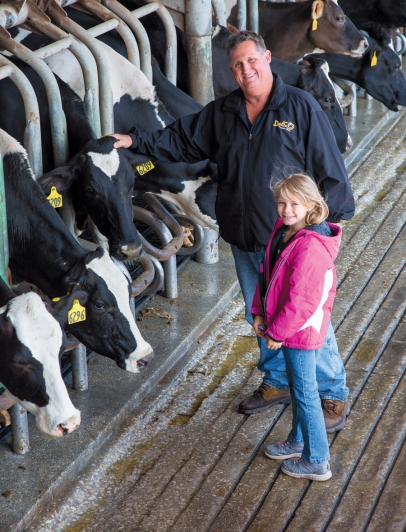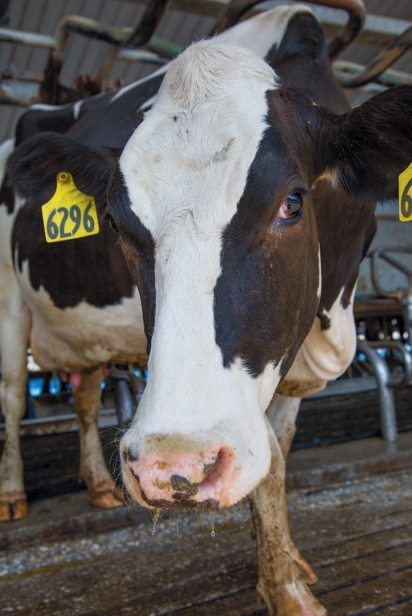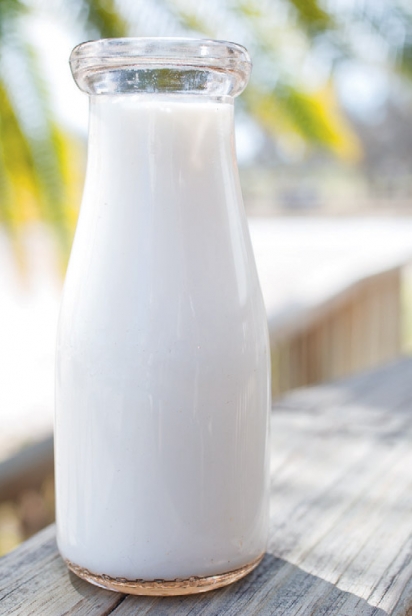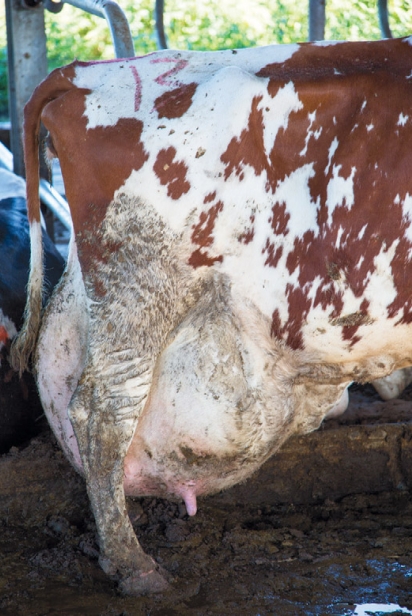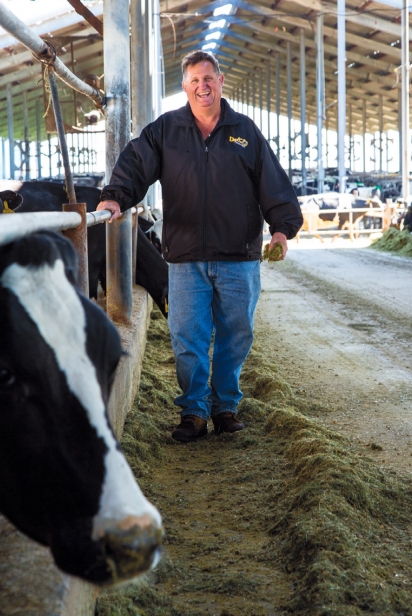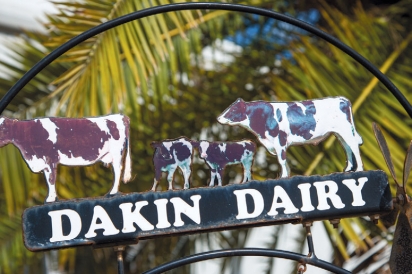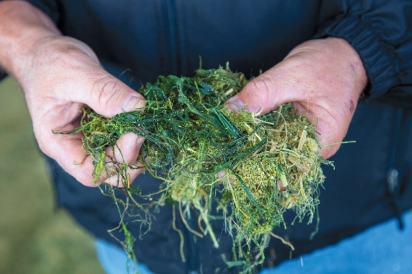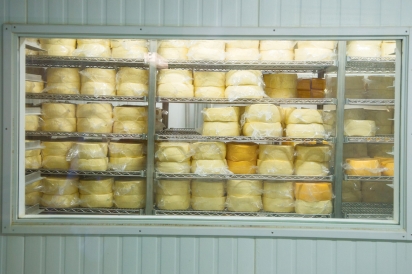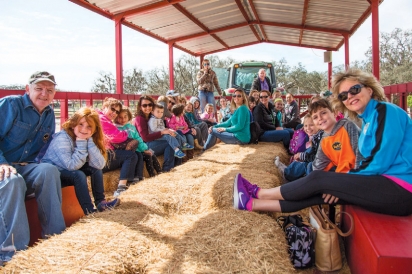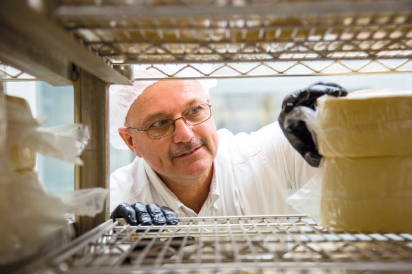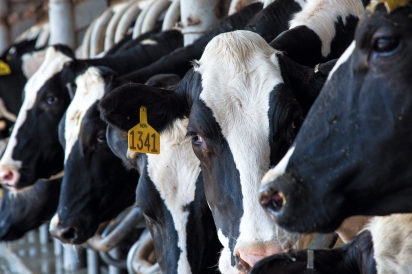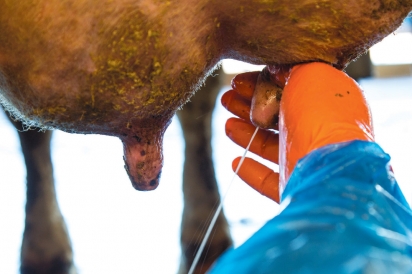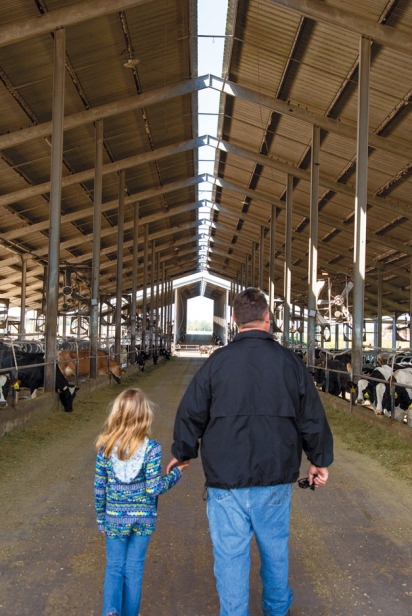A Day at Dakin
Milkin’It
The cows of Dakin Dairy Farm seem quite content. There is no prodding going on as the ladies stroll to their milking stations. As they exit, it seems as if they are chatting around the water cooler—er, water trough. Some chew their cud and observe farm tourists while others gladly accept a little pat on the head. Dakin cows also have something many other dairy cows do not: access to fresh grass year round.
“When people come here I want them to see the green stuff—that fresh grass that we’re cutting,” says owner Jerry Dakin, “because that’s what makes our animals so healthy.”
The cows also enjoy shelter from the sun and protection from the heat thanks to covered, but open, structures complete with sand beds and mister fans. Dakin Dairy is so concerned about the cows’ needs that it has deemed 2017 the year of cow comfort.
“We ask ‘Is it about us or it is about those cows?’” says Scott Cagle, Dakin’s general manager. “And it better be about those cows, because they are who we are working for.”
The Dakin Dairy team knows healthy, happy cows produce fresh, quality milk—and all of the glorious dairy products that come from with it.
Take, for example, their preservative-free chocolate milk: fresh Dakin whole milk infused with cane sugar and real Dutch cocoa. It’s easy to see how people get hooked.
“I was standing in line at Detweiler’s, and a lady was in front of me with our chocolate milk,” says Dakin, who chose not to disclose his identity to her. “And I asked ‘Does your boy like chocolate milk?’ and she said ‘Yeah, he went out there on this tour they gave him chocolate milk and now he makes me buy it all the time.’”
Dakin offers samples of their chocolate milk as well as whole milk during farm tours, when visitors get to see it all—including how milk gets from the cow to the processing room, bottled, packaged, and to the farm store.
“We like to think we create memories that last forever and the kids get to know where milk comes from,” says Dakin.
And now the Dakin farm tour also includes a bird’s eye view of its newest venture: cheesemaking.
“You can make cheese out of any milk, but we want to have quality cheese,” says Dakin Dairy’s cheesemaker Allen Bassler.
Bassler was brought on board to head up the cheesemaking operation, which kicked off in November 2016. A former dairy farmer and self-taught cheesemaker from Virginia, Bassler, who has been making cheese for 30 years now, brought some of his equipment and Dakin provided him with the quality milk he needed. He started experimenting with mozzarella about a year ago, followed by cheddar at the end of last year. Since then, the types of cheese and the recipes for making them have been an evolving and expanding endeavor. Currently Dakin sells cheddar, cheese curds, aged cheese, and both vinegar and cultured mozzarella.
Dakin Dairy has also found a way to incorporate its longstanding philosophy of waste consciousness and sustainability into its cheesemaking. According to Dakin, consumers have trended back to drinking full-fat milk, leaving an industry-wide surplus of skim.
“God made the cow and if God wanted there to just be skim milk, he would have made it a skim milk cow,” says Dakin. “All the real health benefits are in the fat.”
Dakin and Bassler decided to take advantage of the surplus skim by using it to make Parmesan.
They also say the flavor of their cheese is directly influenced by the cows’ diet including the grass they consume, which seasonally affects the flavor of the milk.
“One of the things I liked when I came here was you get grass 12 months a year,” says Bassler, who had been accustomed to more drastic seasonal changes in Virginia. “Right now the quality of the milk is the best quality grass-wise,” he says. “And you see it in the cheese color and flavor.”
According to Dakin, spring, fall, and winter provide the most nutritious grass. During summer it grows so fast the protein content takes a plunge.
All Dakin milk is pasteurized and homogenized on site, taking advantage of its freshness. They use a more traditional process of pasteurization, heating it to a lower temperature to ensure the harmful bacteria are killed while allowing the good properties of the milk to stay intact. This strays from ultra-high-temperature pasteurization (UHT) common in the commercial milk industry and used by most large-operation organic milk sellers. UHT pasteurization uses extremely high temperatures and kills everything—essentially sterilizing milk. This allows it to be transported far distances and keep an extremely long shelf life, which is not what’s most beneficial for consumers.
“Local is trumping organic now, and it is better,” says Dakin, who shares many local farmers’ concern that the global food network has gotten so vast that many have lost a very important connection.
“There are a lot of local farmers and we can produce a lot for the state of Florida,” says Dakin. “We have to stay local, support local, buy local.”
You can buy any of the Dakin products at their farm market on site as well as at other select local vendors. They also sell their milk in Whole Foods markets throughout Florida.
Dakin Dairy Farms, Inc.: 30771 Betts Rd. Myakka City; 941-322-2802; dakindairyfarms.com


